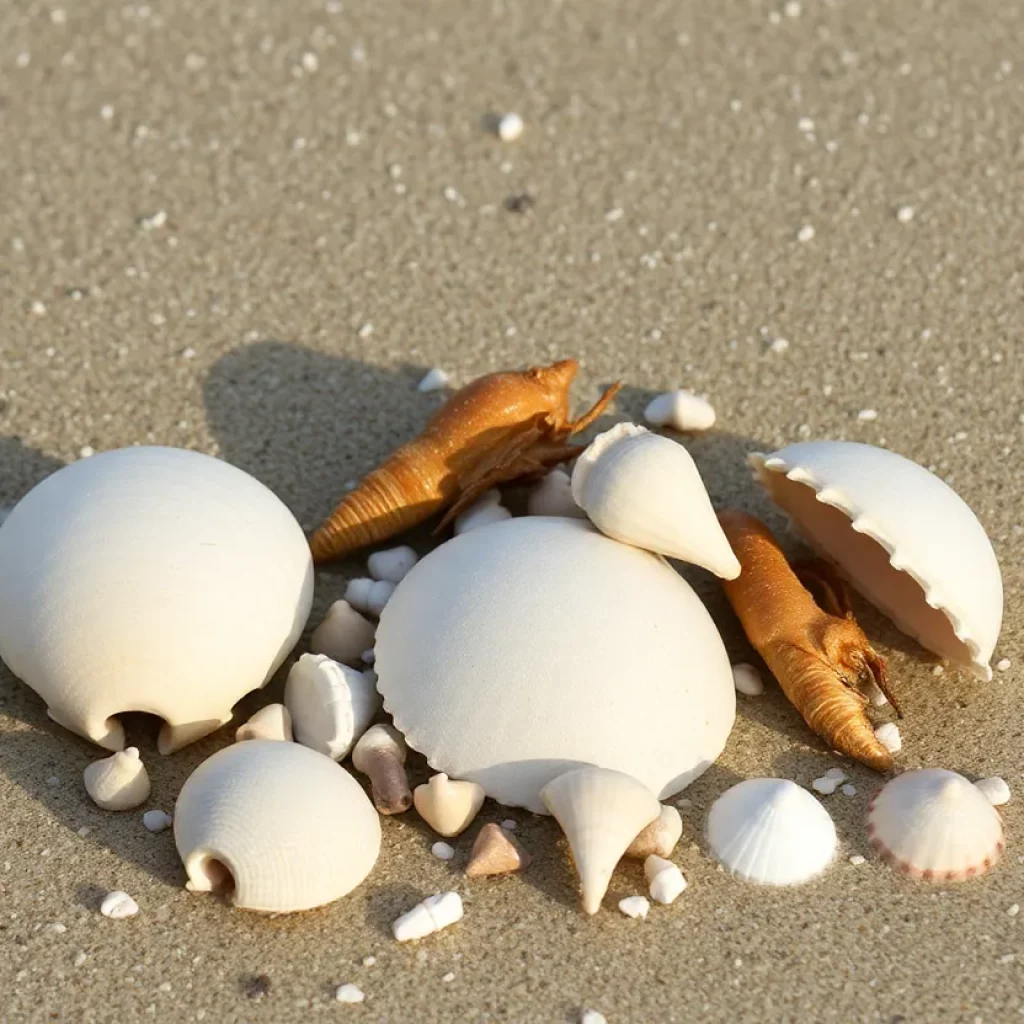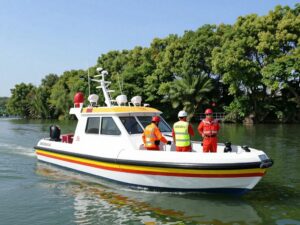Sea Creatures Wash Ashore in South Carolina During Winter Months
South Carolina beaches are not just summer destinations. Even as temperatures cool down, marine life continues to wash ashore, surprising many beachgoers. This seasonal occurrence is notable in cities like Charleston, where the South Carolina Department of Natural Resources (SCDNR) reported an increase in marine animals stranded on the shore.
Who is Involved?
According to Erin Weeks, a spokesperson for SCDNR, both visitors and locals should keep an eye out for stranded sea creatures. These range from smaller species like jellyfish and seahorses to larger animals such as sea turtles and dolphins.
What Happens?
During winter, marine life can often be found washed ashore, as strong winds and stormy conditions push them out of their natural habitat. “Winter is generally a quieter season here in South Carolina — in most places — but I think a lot of people would be surprised at how active wildlife remains,” said Weeks. The colder temperatures can also make certain species, like sea turtles, more susceptible to becoming stranded due to a phenomenon called cold-stunning.
Where Are These Stranded Animals Found?
Stranded marine creatures can be spotted along South Carolina’s coastlines, especially in areas frequented by the public. Popular beaches and quieter shorelines alike can be sites where these animals are pushed ashore by natural forces.
When Should You Help?
While it is common to see smaller creatures like jellyfish and seahorses washed up due to their limited swimming ability, caution is needed. Weeks advises staying away from venomous species such as **lion’s mane jellyfish** and **Portuguese men-of-war**, which can sting even after they are dead. In contrast, Cannonball jellyfish are more frequent in warmer months and are generally harmless.
For those willing to help, if you find a non-lethal creature, you can attempt to return it to the ocean. Weeks notes, “If you see a sea star or a seahorse washed ashore and you want to throw it back into the water, chances are that it’s been ashore for a while already, and it may not be alive anymore, but there’s no harm in throwing it back.”
Why Is This Important?
It is crucial to help out where possible, particularly for larger species like sea turtles and marine mammals. If you encounter a sea turtle or a stranded dolphin, the best intervention is to maintain distance and contact the SCDNR’s hotline at 1-800-955-5431. This hotline operates specifically for instances involving marine mammals and protected species to ensure proper response and care.
Conclusion
Winter beachgoers should remain vigilant, as South Carolina’s coastal waters continue to pose risks to local wildlife. Understanding how to safely identify and assist stranded aquatic animals is essential for the well-being of these creatures. By knowing when to help and when to call for professional assistance, everyone can contribute to the protection of these vulnerable species.
In summary, South Carolina’s beaches offer more than just scenic views in the cooler months; they also serve as a reminder of the delicate balance between marine life and their environment, warranting care and attention throughout the year.

Author: STAFF HERE CHARLESTON
The CHARLESTON STAFF WRITER represents the experienced team at HEREcharleston.com, your go-to source for actionable local news and information in Charleston, Charleston County, and beyond. Specializing in "news you can use," we cover essential topics like product reviews for personal and business needs, local business directories, politics, real estate trends, neighborhood insights, and state news affecting the area—with deep expertise drawn from years of dedicated reporting and strong community input, including local press releases and business updates. We deliver top reporting on high-value events such as the Spoleto Festival USA, Charleston Wine + Food Festival, and the MOJA Festival. Our coverage extends to key organizations like the Charleston Metro Chamber of Commerce and the Charleston Museum, plus leading businesses in tourism and maritime industries that power the local economy such as South Carolina Ports Authority and the Charleston Visitor Center. As part of the broader HERE network, including HEREaiken.com, HEREbeaufort.com, HEREchapin.com, HEREcharleston.com, HEREclinton.com, HEREcolumbia.com, HEREgeorgetown.com, HEREgreenwood.com, HEREgreenville.com, HEREhiltonhead.com, HEREirmo.com, HEREmyrtlebeach.com, HEREnewberry.com, HERErockhill.com, HEREspartanburg.com, HEREaustin.com, HEREcollegestation.com, HEREdallas.com, HEREhouston.com, and HEREsanantonio.com, we provide comprehensive, credible insights into South Carolina's dynamic landscape.










